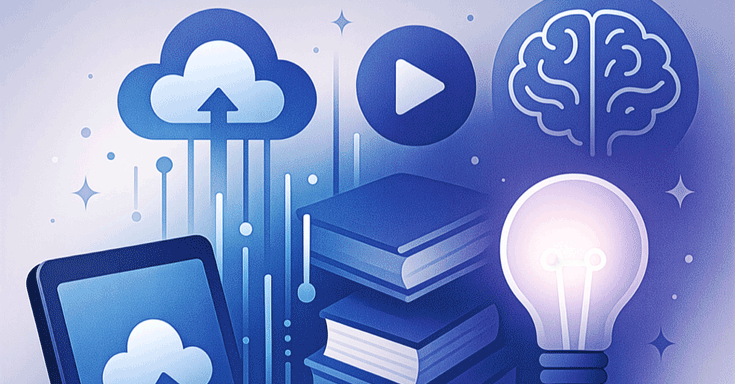Digital Tools and the Growth Mindset: Fostering Lifelong Learners
Former Analyst

In my last post, I discussed the importance of fostering a growth mindset in higher education: Fostering a Growth Mindset in Higher Education Today. In this post, I want to expound on this idea, focusing on engaging with digital tools to foster a growth mindset for lifelong learning.
One of the most dynamic ways to nurture a growth mindset is through the intentional use of digital tools. When thoughtfully integrated into learning environments, these technologies unlock opportunities for students and professionals alike to embrace challenges, learn from feedback, and continuously grow.
The Role of Digital Tools in Developing a Growth Mindset
Digital technologies are more than just platforms for content delivery; they serve as catalysts for active exploration, creativity, and resilience. Adaptive learning platforms, for example, personalize educational experiences, meeting learners at their current level and encouraging them to push beyond perceived limitations. By adjusting the difficulty of tasks based on individual progress, such systems reinforce the idea that with effort and perseverance, improvement is always possible.
AI-Driven Feedback and Reflection
One of the greatest strengths of digital tools lies in their capacity to provide timely, tailored feedback. AI-powered applications can identify specific areas where a learner struggles and instantly suggest resources or strategies for improvement. This real-time feedback transforms mistakes into valuable learning moments, instilling confidence and reinforcing the notion that setbacks are stepping stones rather than obstacles.
Gamification and Motivation
Gamified elements, such as badges, leaderboards, and progress bars, add an additional layer of engagement, motivating learners to persevere through challenges. By celebrating incremental progress, digital platforms encourage users to persist, try new approaches, and ultimately internalize a growth-oriented perspective.
Collaboration and Community-Building
Modern digital tools also facilitate collaboration, breaking down barriers of time and location. Through online forums, group projects, and social learning networks, individuals can share experiences, seek advice, and collectively solve problems. This sense of community fosters resilience, as learners realize that struggle and growth are universal experiences, best navigated together.
Bottom Line
Using digital tools to foster a growth mindset goes beyond simply adopting new technologies; it is about cultivating spaces where challenge and feedback drive personal development. Through careful integration, these tools empower learners to become resilient, self-directed, and adaptable, which are qualities essential for lifelong learning in a changing world.
How is your institution using digital tools to promote a growth mindset in learners now and after graduation?
You May Also Like
- Fostering a Growth Mindset in Higher Education Today
- What Does IT Do Today? Responding to Higher Education’s New Reality
- [Webinar] “Navigating the Ambiguity”: Through Radical Efficiency and Agility
Originally posted by Serena Malhotra on LinkedIn. Be sure to follow her there to catch all her great industry insights.
Categories
Share Article:

Other Posts From this Author:
© Copyright 2026, The Tambellini Group. All Rights Reserved.